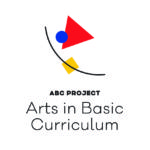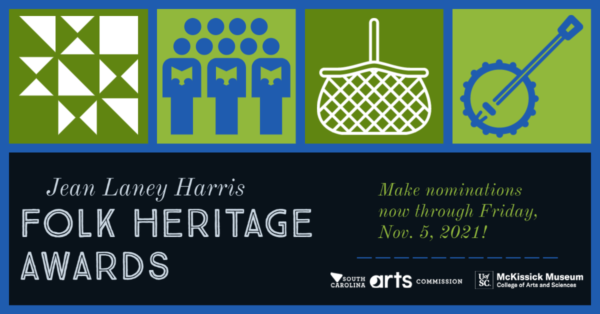Five-year case study to seek improvements in rural arts ed
The Arts in Basic Curriculum (ABC) Project announced it will conduct an intensive five-year case study with the Allendale County School District to discover solutions in how to improve rural communities’ arts education offerings.
 The Community Access to the Arts in Rural Education (CARE) Project, its study and resulting guidebook will be accomplished with a $2.58 million Assistance in Arts Education grant funded by the U.S. Dept. of Education. Set to begin in 2021, the CARE Project will include multiple strategic state and local partnerships with the goal to develop sustainable approaches that will continue beyond the 2026 grant completion date.
The Community Access to the Arts in Rural Education (CARE) Project, its study and resulting guidebook will be accomplished with a $2.58 million Assistance in Arts Education grant funded by the U.S. Dept. of Education. Set to begin in 2021, the CARE Project will include multiple strategic state and local partnerships with the goal to develop sustainable approaches that will continue beyond the 2026 grant completion date.
“Rural communities require a rural network of partnerships because of their lack of resources, and the CARE Project will align, strengthen and expand community partnerships among the Allendale schools with state and local partners,” ABC Project Director Kim Wilson said.
Initial commitments to the CARE Project were received from the South Carolina Arts Commission (SCAC), South Carolina Department of Education, Arts Access SC and South Carolina Educational Television. Additional state and national partners will develop based on the needs and areas of growth identified throughout the CARE Project.
Margaret Gilmore, superintendent of Allendale County School District, said her district is truly excited and grateful to have been awarded the arts grant for the amazing scholars of Allendale County School District. “This funding opportunity will certainly provide access to a sustainable arts-rich learning environment for the entire school community,” she said.
Arts advocates also are pleased with this opportunity.
“After many years of working in Allendale County, it’s clear that there are many people who love and care about their community and the next generation,” said Susan DuPlessis, SCAC director of community arts development. “We are excited about ways to engage the community as this study and new practices are developed.”
DuPlessis runs the SCAC’s “The Art of Community: Rural SC” initiative, which works in partnership with Allendale Rural Arts Team, which is led by Lottie Lewis. “There is momentum in Allendale for building community, addressing issues and identifying assets like never before,” she said. “This new emphasis on learning through the arts within the school system will have a reciprocal effect, I believe, on the whole community—and that’s exciting for young and old.”
In communities with high rates of poverty, access to the arts can be difficult, Wilson added. It takes money for art, music or dance lessons, and all too often, rural schools don’t prioritize arts education due to financial constraints. Access to the arts, however, has been found to influence student engagement and there is hope in South Carolina that the arts can be nurtured in every community.
The CARE Project’s goal is to create and share a resource guidebook based on Allendale’s experiences to empower other rural communities of persistent poverty to increase access to arts education for its students. “One of the most important outcomes will be to explore how to develop and maintain arts-rich learning environments as a pathway to equitable education,” Wilson said. “There is an urgent need to research and serve these communities, which have been continually absent from research and policy discussions, yet represent the most extreme gaps in equitable education,” she added.
To communicate the grant’s significance, Wilson noted that the Palmetto state has a higher percentage of schools in rural communities than the national average and 12 of the state’s 46 counties suffer from persistent poverty, meaning poverty rates have exceeded 20 percent of the population for more than 30 years.
The CARE Project will provide direct arts education programs and professional development for arts educators, teachers and principals in practices that support arts-rich learning. “An arts-rich learning environment includes a combination of direct arts instruction, arts integration with other non-arts curriculum and arts experiences provided by visiting artists or cultural and community organizations,” said Wilson.
The guidebook will contain instructional materials, arts-based lesson plans and other resources to engage stakeholder groups in other rural communities to replicate the promising aspects of the process developed during the CARE Project in Allendale.
Education Superintendent Molly Spearman said that, growing up and teaching in a rural community, she has seen firsthand the disparities that still exist in South Carolina.
“Students in rural schools deserve the same opportunities afforded to their peers in more affluent areas,” Spearman said. “I commend the Arts in Basic Curriculum Project for its pursuit and receipt of this funding that will help us establish innovative solutions for bringing access to arts-based education to all students in South Carolina. I look forward to seeing this work in Allendale and learning how we may replicate their successes across our state.”



